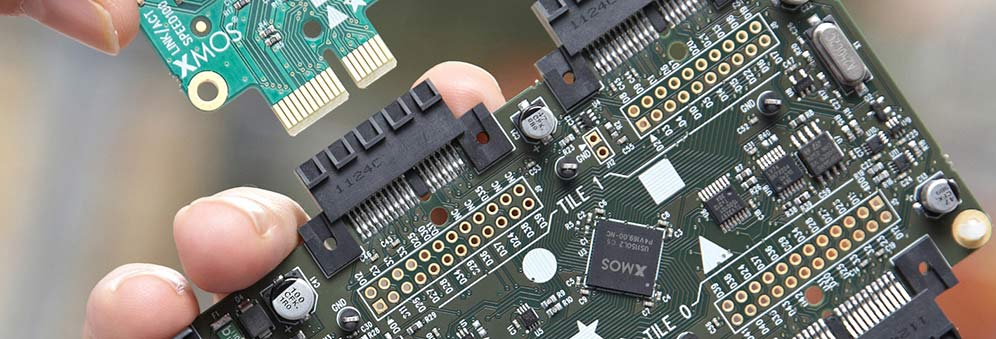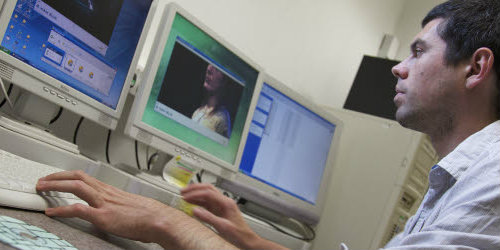XMOS - innovations in embedded systems
A University of Bristol spin-out company now employs more than 50 people across three continents, working to improve efficiency and lower production costs for electronics manufacturers.
The microcontroller chips developed by XMOS can be programmed quickly and easily using standard C/C++ programming language, but unlike traditional products, the devices have multiple processor cores, so they can execute several tasks simultaneously and independently.
“XMOS’s xCORE technology makes it easier for customers to design complex embedded systems for a range of consumer, audio, industrial and automotive applications. It enables uniquely short development cycles; an agile build process; energy efficient processors, and the ability to correct faults quickly,” says Professor David May of the University of Bristol's Department of Computer Science.
Rapid development
Designing and developing a new computer chip is a complex task, and as computers and other gadgets such as mobile phones become more complex, so the task of designing them becomes more arduous. But researchers from the Department of Computer Science have developed a technology that enables consumer electronics equipment manufacturers to follow fashions and differentiate products rapidly at minimal cost.
What started as an undergraduate computer-science project is now being commercialised by spin-out company XMOS - a major semiconductor business that promises to revolutionise the consumer electronics market.
Successful spin-out
Set up in 2005, XMOS now employs more than 50 people and has shipped over 1,000,000 units to over 400 customers all around the world. XMOS produces the world’s lowest-cost multi-core microcontroller and this is used in products from a range of manufacturers including electronics giant Sony.
By 2013 XMOS had a quarterly turnover in excess of £1M, and quarterly sales of more than 250,000 units to over 150 high-volume customers who incorporated XMOS chips in their own products.
At the heart of XMOS’s range is a multicore microcontroller developed by Bristol researchers that delivers scalable, parallel multitasking computing, and that can be configured to support a wide range of interfaces and peripherals, responding much faster than conventional microcontrollers. It is a unique architecture that is transforming embedded system design.
This technology development was led by Professor David May and involved innovations in the architecture of processor cores for use in processor arrays on chips, in modules and in systems (along with the associated programming concepts). In particular, it explored multi-threaded processors, interprocessor interconnect and energy-efficient event-driven processing.
Commercial agility
xCORE multicore microcontrollers are truly unique. Like traditional microcontrollers, they are programmed in C/C++, with all the flexibility and ease-of-use that implies. But unlike traditional products, xCORE devices have multiple processor cores, so they can execute several tasks simultaneously and independently.
This Bristol innovation in chip design has enabled customers to develop their products faster (vital in an ever-more competitive marketplace); reduced cost; make modifications late in the development cycle, even at the hardware level; and design energy efficient processors that only consume power on demand.
A spokesperson from a company developing a new audio product said: “The XMOS USB Audio solution gave our engineers the perfect starting point. Its flexibility allowed us to easily customize the processor to our exact requirements. The single XMOS device replaces a number of components from our previous designs, dramatically upgrading our standard sound specifications, and reducing our material cost. These cost savings through simplified designs and the all-in-one flexibility of the XMOS device enable us to continue building innovative products with amazing sound.”
Not just audio
As well as audio products, XMOS’s customers use the Bristol multicore microcontroller devices for a variety of applications including robotics, industrial systems, high-performance connectivity and in the automotive industry.

